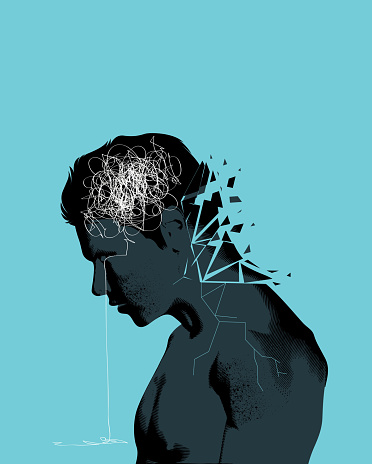5 Effective Ways You Can Manage Stress as a Working Nigerian Student
Student life can be very hectic especially as a student who has to learn how to strike a balance between academic life and social life. It is even more overwhelming if you are working and studying at the same time.
In this blog post, you will learn 5 effective ways you can handle stress as a working Nigerian student.
1. Daily Goal Setting: This is an effective way to manage and reduce stress as a working Nigeria student. By listing out your goals for the day, you are able to focus more, manage your time and handle your school responsibilities and work duties better.
How to Set Daily Goals:
- Get a journal.
- Identify your priorities.
- Set specific and realistic goals.
- Allocate time for carrying out those goals.
- Stay consistent.
- Be flexible and willing to adjust when the need arises.
2. Quality Sleep: Sleeping well is another effective way of handling stress from working and studying at the same time. Getting enough quality sleep helps you to concentrate, energizes you and improves your mood. However, not getting enough sleep will not only affect you physically but mentally, ultimately leaving you more stressed out.
How to ensure you sleep better:
- Create a sleep routine or schedule.
- Limit the use of your phone at night.
- Invest in budget-friendly yet quality mattress and pillows.
- Reduce noise/sounds during bedtime.
Some of them include:
- Going for morning/evening walks.
- Taking the stairs.
- Stretching during study/work breaks.
- Riding/Walking to work or classes.
4. Balanced Diet: Eating regular balanced meals will help you to work better and concentrate. It will also energize you and reduce your stress levels. Unfortunately, many Nigerian students prefer to eat junk foods or do not make time to eat enough.
To maintain a balanced diet:
- Eat more vegetables and fruits.
- Drink water regularly.
- Reduce the amount of junk food you eat.
5. Seeking Professional Support and Counseling: It can very overwhelming trying to handle school life and work as well. Therefore, it is good to meet with counsellors and therapists where you can pour out your feelings and emotions and get encouragements and directions on how to cope.
Here are 3 things you must consider when choosing a therapist/counsellor:
- Are they licensed/accredited professionals?
- Do they allow flexible therapy options like online therapy?
- Is it affordable?
Conclusion
Handling your school life alongside trying to make ends meet can place a lot of burden on your mental state and leave you stressed out. But through daily goal setting, regular exercise, quality sleep, healthy eating and seeking professional support, you will be more equipped to manage and reduce those pressures.
Understanding Mental Health Challenges Across Different Groups
status. In this article, we explore the unique mental health challenges faced by specific groups, shedding light on the significance of awareness, understanding, and support.
Children navigate a complex world filled with new experiences, challenges, and emotions. Although childhood is often seen as carefree, many young ones encounter mental health difficulties that require attention and support. From anxiety and depression
to behavioral disorders, children face a range of problems that can impact their emotional and psychological well-being. Factors such as family dynamics, academic pressure, bullying, change, and societal expectations can exacerbate these issues. Early intervention, open communication, and access to mental health resources are crucial in supporting the mental well-being of children. Mycarebuddy for kids provides the ideal environment to cater to your kids' mental health needs.
As students transition from adolescence to adulthood, they have to cope with academic pressures, social dynamics, and personal growth. Unfortunately, stress, anxiety, and depression have become prevalent among students, and these issues are fueled by factors like academic competition, financial strain, peer pressure, and societal expectations.
Balancing coursework, extracurricular activities, and social life can take a toll on students' mental health, leading to burnout and feelings of inadequacy. To support the well-being of students, we need to promote a culture of self-care, reduce stigma surrounding mental health issues, and provide accessible mental health services on campuses.
The modern workplace can be stressful for employees who have to navigate high- pressure environments, demanding deadlines, and interpersonal dynamics. As a result, work-related stress, burnout, and job insecurity contribute significantly to mental health
issues among workers. Unfortunately, the stigma surrounding mental health in the workplace often discourages employees from seeking help, leading to prolonged suffering and decreased productivity. Employers must, therefore, foster a supportive
work culture, implement stress management programs, and provide access to mental health resources to promote mental well-being. Our website, Mycarebuddy offers mental health resources for workers to help them achieve top productivity levels.
Relationships are essential, yet they can also be a source of significant stress and strain, particularly for couples facing mental health challenges. Communication breakdown, unresolved conflicts, and external stressors can impact the emotional well-being of partners, leading to feelings of isolation and resentment. Mental health issues within relationships often require open dialogue, empathy, and professional intervention to navigate effectively. Our Couples therapy, support groups, and healthy coping
mechanisms at Mycarebuddy can help strengthen relationships and promote mutual well- being.
Motherhood is a powerful journey that brings immense joy. However, it can also lead to significant mental health challenges, especially for new mothers. These challenges may include postpartum depression, anxiety, and adjustment disorders. New moms navigate through hormonal changes, sleep deprivation, and the pressures of caregiving. They also face the societal expectation of maternal perfectionism and the pressure to "bounce back", which can exacerbate these challenges and leave them feeling overwhelmed and isolated. To help new mothers prioritize their mental well-being, it's crucial to have peer support networks,
counselling services, and maternal mental health initiatives available. Mycarebuddy’s New Mom Meal Plan is an excellent initiative that provides proper dieting, which is crucial for new moms.
relationships often require open dialogue, empathy, and professional intervention to
navigate effectively. Our Couples therapy, support groups, and healthy coping
mechanisms at Mycarebuddy can help strengthen relationships and promote mutual well-
being.
5. New Moms:
Motherhood is a powerful journey that brings immense joy. However, it can also lead to
significant mental health challenges, especially for new mothers. These challenges may
include postpartum depression, anxiety, and adjustment disorders. New moms navigate
through hormonal changes, sleep deprivation, and the pressures of caregiving. They also face
the societal expectation of maternal perfectionism and the pressure to "bounce back", which
can exacerbate these challenges and leave them feeling overwhelmed and isolated. To help
new mothers prioritize their mental well-being, it's crucial to have peer support networks,
counselling services, and maternal mental health initiatives available. Mycarebuddy’s New
Mom Meal Plan is an excellent initiative that provides proper dieting, which is crucial for
new moms.
It's important to understand that mental health challenges can affect individuals at various
stages of life and circumstances. When we understand the unique struggles faced by different
groups, we can foster empathy, reduce stigma, and promote a culture of support and
acceptance. Therefore, it's essential to prioritize mental health awareness, access to resources,
and community-based initiatives to ensure that everyone receives the support they need to
thrive mentally and emotionally.
Art Therapy for Mental Wellness
Humans possess an innate ability to be creative. When we can harness this creativity, it has the potential to bring us inner peace and clarity of mind. Art therapy is an effective way of expressing ourselves that blends psychology with creativity, providing an effective means of emotional release, self-discovery, and mental well-being. Some examples of artistic therapeutic outlets include:
1. Art Painting
Painting is a powerful tool for emotional release and self-exploration. Individuals can express their intangible emotions through art by applying colors to a canvas, creating tangible works of art. Each stroke of the brush, whether it's abstract splatters or intricate brushstrokes, carries a narrative, reflecting the artist's journey towards healing and self-discovery. For many, painting offers liberation from the constraints of language, enabling them to express complex emotions that may otherwise remain unspoken.
2. Poetry
Poetry has been revered as a means of self-expression and introspection, thanks to its rhythmic cadence and lyrical beauty. In art therapy, poetry serves as a poignant medium for individuals to articulate their innermost thoughts and feelings with poetic precision. Regardless of the form, whether through free verse or structured poetry, individuals can weave words into verses to craft narratives that capture the essence of their lived experiences. Poetry offers a safe haven, allowing individuals to confront their emotions head-on, transforming chaos into coherence and pain into poetry
3. Writing
Writing is a powerful tool that can help individuals in art therapy to express themselves and transform their experiences. Whether it's in the form of reflective writing, storytelling or journaling, writing provides a platform for people to document their inner worlds, aspirations, and dreams. Through writing, individuals can make sense of their emotions, experiences, and thoughts, and chart a path towards healing and self-discovery. By chronicling their journey on paper, individuals can bear witness to their own resilience and strength, fostering a sense of empowerment and agency in the face of adversity. If you're interested in starting your own mental wellness journey, Mycarebuddy offers affordable mental wellness journals to help you
get started.
Art therapy is a form of therapy that uses various artistic mediums to help individuals achieve better mental health. By encouraging creativity as a way to express and explore themselves, people can navigate the complexities of their inner worlds and find healing, resilience, and empowerment. As we continue to recognize the profound impact of art therapy on mental wellness, let us embrace the power of creativity to catalyze personal growth, transformation, and healing.
Is Intentional Emotional Pain a Form of Self-Harm?
destructive behaviors. In the following discussion, we will delve deeper into this issue.
Emotional self-harm refers to the act of intentionally causing psychological distress or pain to oneself. This can manifest in various ways, such as engaging in negative self-talk, ruminating on past traumatic experiences, seeking out content that triggers negative emotions, engaging in self-sabotaging behaviors that perpetuate feelings of guilt, shame, or worthlessness, and enduring or remaining in relationships where one is not valued or respected. Unlike physical self-harm, emotional self-harm does not leave visible scars and can go unnoticed by others, which can make it more challenging to detect and address.
Unfortunately, some people have become so accustomed to these negative feelings that they begin to accept them as the norm and settle for less.
Overtime, this pain builds up and gradually affects the mindset of a person and subsequently their way of life and the decisions they make as they begin to feel negativity as the norm and positive spaces and situations as something they might never experience.
The topic of intentional emotional pain and whether it falls under the category of self-harm is a complex and ongoing debate. Although emotional self-harm doesn't result in a physical injury like other self-harming behaviors, it shares similar underlying mechanisms and consequences. Both types of self-harm involve a desire to alleviate emotional distress but through different means.
Emotional self-harm can be just as detrimental to one's mental health and well- being, if not worse, as it is harder to detect. It can lead to increased feelings of despair, isolation, and hopelessness.
Various reasons may contribute to the emergence and persistence of emotional self-harm behaviors. These reasons include past traumatic experiences, unresolved emotional problems, dysfunctional coping mechanisms, and underlying mental health conditions such as depression, anxiety, or borderline personality disorder. Moreover, societal stigma regarding mental health, as well as a lack of comprehension or support, can intensify feelings of self-blame and shame, which can further worsen emotional self-harm tendencies.
Individuals who engage in emotional self-harm often find themselves in environments where they are not respected or acknowledged. They may also have close relationships with people who undermine their self-esteem and cause them to have a negative perception of themselves.
Unfortunately, it can be difficult for these individuals to leave such situations, and they often go through life trying to please those who devalue them, which ultimately harms them.
Recognizing and addressing emotional self-harm requires a compassionate and holistic approach. This approach involves identifying underlying triggers and coping mechanisms, fostering self-awareness, and self-compassion, and developing healthier coping strategies. Therapy, particularly cognitive- behavioral therapy (CBT), dialectical behavior therapy (DBT), or acceptance
and commitment therapy (ACT), can be instrumental in helping individuals understand and modify their thought patterns and behaviors.
It's important to understand that self-harm can take different forms, not just physical harm. Emotional self-harm is when someone intentionally causes themselves psychological distress as a way to cope with overwhelming emotions or as a form of self-punishment. This type of self-harm can be just as harmful as physical self-harm, but it's less visible. Getting support from mental health experts and undergoing therapy can help those who suffer from emotional self- harm. It can help them unlearn negative self-perceptions, build their self-worth and self-esteem, and learn ways to live more fulfilling lives. At Mycarebuddy, we're passionate about helping people become the best versions of themselves and live their lives free from external opinions and validation
personality disorder. Moreover, societal stigma regarding mental health, as well
as a lack of comprehension or support, can intensify feelings of self-blame and
shame, which can further worsen emotional self-harm tendencies.
5. Emotional Self-Harm and Relationships:
Individuals who engage in emotional self-harm often find themselves in
environments where they are not respected or acknowledged. They may
also have close relationships with people who undermine their self-esteem
and cause them to have a negative perception of themselves.
Unfortunately, it can be difficult for these individuals to leave such
situations, and they often go through life trying to please those who
devalue them, which ultimately harms them.
6. Addressing Emotional Self-Harm:
Recognising and addressing emotional self-harm requires a compassionate and
holistic approach. This approach involves identifying underlying triggers and
coping mechanisms, fostering self-awareness, and self-compassion, and
developing healthier coping strategies. Therapy, particularly cognitive-
behavioural therapy (CBT), dialectical behaviour therapy (DBT), or acceptance
and commitment therapy (ACT), can be instrumental in helping individuals
understand and modify their thought patterns and behaviours.
Moreover, creating a supportive environment where individuals feel safe and
validated in expressing their emotions without judgment is essential. Education
and destigmatization efforts can also help raise awareness about the
complexities of self-harm, including emotional self-harm, and promote empathy
and understanding within communities.
It's important to understand that self-harm can take different forms, not just
physical harm. Emotional self-harm is when someone intentionally causes
themselves psychological distress as a way to cope with overwhelming emotions
or as a form of self-punishment. This type of self-harm can be just as harmful as
physical self-harm, but it's less visible. Getting support from mental health
experts and undergoing therapy can help those who suffer from emotional self-
harm. It can help them unlearn negative self-perceptions, build their self-worth
and self-esteem, and learn ways to live more fulfilling lives. At Mycarebuddy,
we're passionate about helping people become the best versions of themselves
"No Gree For Anybody" - Your Guide to a Mentally Healthy 2024
Happy new year from us once again, welcome to 2024. If you've been on the Nigerian internet, you're probably acquainted with our mantra for the year "no gree for anybody". In this article, you'll be introduced to how you can incorporate this to be mentally healthy this year.
- No gree for yourself: your resolutions are probably set and if you've been able to keep them consistently these past five months, then congratulations. It's easy to get tired and want to give up along the way, to want to procrastinate those big dreams to a later date, but let me paint a picture in your head. You're seated at the end of this year, counting your blessings and the accomplishment you've made so far is tremendous, you've broken that addiction, dropped that emotional baggage and have carried out at least 80% of the things you set out to do. In simple terms, don't give up, don't put off what you can do for later, no gree for yourself.
- No gree for bad energy: even if the bad energy is coming from you. Don't allow anyone make you think less of yourself, including yourself. Lock out those negative thoughts, surround yourself with all the positivity that you can get. Those dreams you have, chase them, there's no stopping what you can do as long as you're determined, let nobody tell you otherwise.
- No gree for stress: take breaks when you need to, cut out what you need to, don't let anyone or anything stress you out. Doing what you need to do with a well rested mind will breed more results.
- No gree for any obstacle: you've come too far to give up now, whatever stands in your way this year, try, try as much as possible to see that you overcome. Of course be sure to reward and motivate yourself after every milestone. We're rooting for you.
- No gree for negative effects on your mental health: feeling overwhelmed, talk to someone, I you feel the need for a therapist, do not ignore it, Mycarebuddy's Basic Talk Therapy has got you covered. Have wellness products at your disposal and do not be ashamed to proclaim how much of a mental health enthusiast you are. Resist the urge to overthink or let anything or anyone take a negative toll on your mental health. Make good use of Affirmations and block out any form of negativity, you are who you think you are, let nobody tell you otherwise.
Be audacious this year, dare to dream and stay mentally healthy while at it. Follow Mycarebuddy across all social media platforms. This is us not "greeing" for you. We have some amazing things prepared for you to make sure your mental health is at its peak this year and you wouldn't want to miss out. Seek the help of a therapist when necessary, make good use of our wellness products and be sure to implement the tips we drop online. Cheers to a fulfilling year.
Navigating the Landscape of Men's Mental Well-being
According to the World Health Organization, around the globe, men are less likely to seek help regarding mental health issues than women, contributing to a higher suicide rate among men.
Men's mental health awareness is crucial in any society prioritizing mental wellness. It surpasses merely acknowledging mental health issues in men; it involves dispelling stereotypes, fostering open conversations, and providing support structures enabling men to seek help without fearing judgment.
Stigma Surrounding Men's Mental Health
Societal expectations often dictate that men should be stoic and unemotional, creating a stigma discouraging them from expressing vulnerability or seeking help. This stigma erects barriers, dissuading men from being open and seeking necessary support. The fear of judgment from society and the dread of being perceived as weak hinder men from seeking help, causing them to internalize their struggles to conform to societal norms.
Effects on Mental Health
When men try to hide their mental health challenges to appear strong, it can lead to feelings of isolation and alienation. As an escape from addressing their mental health, they may turn to harmful coping mechanisms such as substance abuse or, in severe cases, suicide.
These issues can significantly impact their daily activities, including work, and strain their relationships when not properly addressed.
Promoting Mental Well-being Amongst Men in Society
- Encouraging Authenticity: True strength lies in being authentic and vulnerable when necessary. Encouraging men to address these issues as they arise fosters a mentally sound society.
- Challenging Stereotypes: Openly celebrating men who express themselves and address mental health issues challenges stereotypes and fosters a more accepting environment.
- Fostering Supportive Communities: Creating safe spaces and environments where men feel secure discussing their mental health without judgment is crucial.
- Encouraging Empathy: Promoting empathy in communities helps eradicate stigma and encourages understanding.
- Exploring Traditional Gender Norms: Examine how traditional gender norms, expecting men to be strong and self-reliant, affect their mental health by discouraging emotional expression.
- Examining Prevalence of Mental Health Issues: Explore the high prevalence of mental health issues in men, such as depression, anxiety, and suicidal tendencies.
- Sharing Real-life Stories: Humanize these challenges by sharing real-life stories, demonstrating that mental health issues affect individuals from all walks of life.
- Seeking Professional Help: Provide information on available mental health resources and services tailored to men's needs. Encourage men to consider therapy or counselling as valuable options for addressing mental health concerns. Mycarebuddy for individuals is the perfect start for therapy for men.
This well thought out approach as suggested by Mycarebuddy, seeks to destroy the stigma around men's mental health, encouraging an environment where seeking help is accepted for the overall well-being of men and the society. Men’s Mental health should be properly embraced. Celebrate the men in your life who are trying hard to keep it together and encourage them to be mentally aware always. We care about you.
The Power Of Therapy, Capacity Development Trainings, And Workplace Wellness
Our world today is fast paced, and the importance of mental health in the workplace cannot be overemphasized. A mentally healthy workforce is not only more productive but also fosters a positive and supportive work environment. In this article, we explore the pivotal role that therapy, capacity development trainings, and workplace wellness programs play in cultivating mentally aware and sound employees.
- The Impact of Mental Health on Productivity:
Mental health directly influences an individual's ability to perform in his or her full capacity in the workplace. Employees facing mental health challenges may struggle with focus, creativity, and decision-making, which in turn affects their overall productivity. Maximum productivity highlights the importance of addressing mental wellness in relation to workplace performance.
- Therapy: A Cornerstone of Mental Well-being:
Encouraging employees to seek therapy is a proactive approach to maintaining mental health. Therapy provides a confidential space for individuals to address personal and work-related challenges, helping them develop coping mechanisms and resilience. Mental health care emphasizes the organization's commitment to supporting the emotional well-being of its staff.
- Capacity Development Trainings: Building Resilience and Skills:
Capacity development trainings go beyond traditional skill-building; they also focus on enhancing emotional intelligence and resilience. Employees equipped with these qualities are better able to manage stress, adapt to change, and maintain a positive mindset. Capacity development highlights the organization's dedication to nurturing well-rounded individuals.
- Workplace Wellness Initiatives:
A holistic approach to employee well-being involves implementing workplace wellness initiatives. These can include fitness programs, mindfulness sessions, and mental health awareness campaigns. By incorporating workplace wellness and employee care, the organization demonstrates its commitment to creating an environment that prioritizes the health and happiness of its workforce.
- The Role of Leadership: Fostering a Supportive Culture:
Leadership plays a very important role in fostering a mentally healthy workplace. Encouraging open communication, providing resources for mental health support, and leading by example create a culture where employees feel valued and supported. Leadership in mental health and supportive workplace culture emphasize the organization's commitment to top-down support.
- Measuring Success: Metrics for Mental Well-being:
Implementing strategies for mental health should be accompanied by measurable outcomes. Utilizing mental health metrics and employee well-being assessment underscores the organization's dedication to tracking progress and continuously improving its initiatives.
In a world where the lines between personal and professional life often blur, investing in the mental health of employees is not just a corporate responsibility but a strategic move. By prioritizing therapy, capacity development trainings, and workplace wellness, organizations can create an environment where employees thrive, ultimately leading to increased productivity, satisfaction, and success. Mycarebuddy for Organizations prioritizes mental health in the workplace, book a session for your organization to champion mental health and have mentally aware and sound employees in the workplace to build a future where every employee can bring their best selves to work and have maximum productivity.







